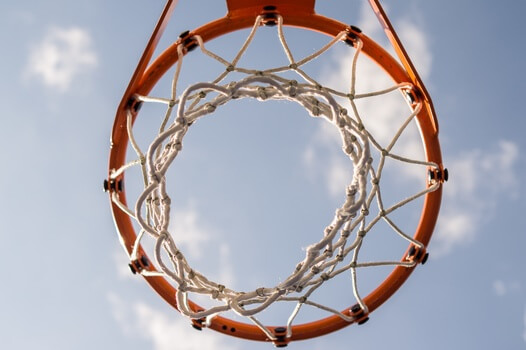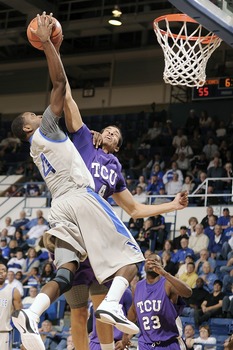In late January, Duke University Men’s Basketball Coach Mike Krzyzewski (Coach K) reached a significant career milestone, becoming the first NCAA Division I Men’s Basketball Coach to reach 1,000 wins. Attainment of 1,000 wins is a remarkable accomplishment only achieved by a handful of collegiate coaches.

|
Harry Statham, who has coached at Division II McKendree (Lebanon, Illinois) since 1967, tops the 1,000-win list with 1,085. Danny Miles, at Oregon Tech (NAIA), is second with 1,016. Krzyzewski is next, with Herb Magee of Philadelphia University (Division II) at 998. In women’s basketball, retired Tennessee coach Pat Summitt is the all-time leader with 1,098 victories. Rutgers coach Vivian Stringer is second with 929 wins…The all-time leader for victories at any level of college basketball is 79-year-old Gene Bess, who is in his 45th season at Three Rivers Community College in Poplar Bluff, Missouri, and has a 1,203-350 record (Marcus, 2015). |
Maybe more remarkable than the sheer number of wins is Coach K’s unrelenting quest for excellence and mastery as a coach. In coaching circles, Coach K is considered a master teacher (Wielgus, 2014). A master teacher is defined as someone that has acquired an expert level of subject knowledge and demonstrates effectiveness in sharing this information with his or her students (Kreber, 2002). As a teacher of sport, the coach acquires knowledge in skill development, game strategy, rules of the sport, etc. Through education, experience, and deliberate practice they can become more effective in their ability to teach the student-athlete (Schempp, McCullick, & Mason, 2006).

While the number of wins does not define a master teacher in sport, it certainly is an indicator of effectiveness and expertise. Along his journey to 1,000 wins, Coach K unquestionably acquired expert knowledge about the technical and tactical aspects of coaching. More importantly, he developed the ability to effectively apply this knowledge when teaching and leading his team.
Fortunately, achieving the level of a master teacher does not necessitate accomplishing 1,000 wins. However, becoming a master teacher does require a purposeful attempt to become an expert in your field and improve your instructional effectiveness (Turner, 2012). Already considered a master at his craft prior to 1,000 wins, by surpassing the milestone Coach K likely solidified his status as a mentor for all coaches regardless of the sport. This is similar to the role Hall of Fame and legendary UCLA men’s basketball coach John Wooden fulfilled after retiring. Grounded in his pyramid of success (Wooden & Tobin, 1988), Coach Wooden modeled, spoke, and wrote about a variety of actions he viewed necessary for acquiring expertise and becoming a more effective teacher. Furthermore, Coach Wooden modeled the philosophy etched in his pyramid, by striving for continuous improvement through research (Nater & Gallimore, 2010).
At the conclusion of each basketball season, during the off-season his (Wooden’s) self-improvement research began. He chose only one topic each off-season. The goal was to uncover all he could learn about a specific subject, draw conclusion, and apply it to his teaching (Nater & Gallimore, 2010, p. 43).

Coach K’s involvement with the USA Olympic National Team is a great example of his continuous pursuit of professional growth and a desire to learn. In an interview with USA Today Sports, Krzyzewski stated, “Being around (USA Basketball) there’s a lot of pressure. I’ve learned a lot. It’s been invigorating” (Auerbach, 2013). Coach K’s philosophical approach to learning can best be summed up in his book Beyond Basketball, where he shares his curiosity for ways to improve as a coach.
“I always remind myself that you learn forever and from everyone. That is why, with everyone I meet, I try to listen with an open mind and the willingness to learn. You never know when or from whom your next great lesson will come” (Krzyzewski & Spatola, 2006, p. 104).
In the few weeks leading up to the 1,000 win mark, stories and key moments in Coach K’s career were shared in the media. ESPN’s SportsCenter featured a special entitled: Coach K-1K, which included former players providing insight into Coach K as a person, teacher, and friend (ESPN, 2015). Fox Sports (2015) did an in-depth interview with him on his basketball life and the 1,000 win milestone. And ESPN columnist Dana O’Neil (2015) interviewed Coach K’s childhood friends, to get a glimpse of him as a person.
While Coach K is a highly recognizable public figure and may seem almost untouchable, the information being presented in these reports provided a deeper, personal view of him as a person: It hinted that he is really just like everyone else. His education as a coach shows us that we too can achieve a sense of mastery if we are willing to commit ourselves to personal and professional growth.
In closing, Coach Mike Krzyzewski’s career clearly validates that the process of becoming a master teacher is not a destination, but a continuous journey of developing expertise and becoming more effective at sharing one’s knowledge. Regardless of where your journey takes you (i.e. 1,000 wins or a long career in education), the choice to develop mastery of your craft is up to you.
References
- Auerbach, N. (2013, December 6). Coach’s corner: Duke’s Mike Krzyzewski. USA Today Sports.
- ESPN (2015, January 18). SportsCenter Special: Coach K-1K.
- FOX Sports (2015, January 25). Mike Krzyzewski 1-on-1 with Bill Raftery.
- Kreber, C. (2002). Teaching excellence, teaching expertise, and the scholarship of teaching. Innovative Higher Education, 27(1), 5-23.
- Krzyzewski, M. & Spatola, J. K. (2006). Beyond basketball: Coach K’s keywords for success. New York, NY: Warner Business Books.
- Marcus, S. (2015, January 25). Reaching the 1,000 win club is a big-time achievement at any level. Newsday.
- Nater, S., & Gallimore, R. (2010). You haven’t taught until they have learned: John Wooden’s teaching principles and practices. Morgantown, WV: Fitness International Technology.
- O’Neil, D. (2015, January 22). Do you know Mike Krzyzewski? ESPN.
- Schempp, P. G., McCullick, B., & Mason, I. S. (2006). The development of expert coaching. In R. L. Jones (Ed.). The sports coach as educator: Re-conceptualizing sports coaching (145-161). New York, NY: Routledge.
- Turner, D. (2012). The journey is the destination: Reconsidering the expert sports coach. Quest, 64, 313-325.
- Wielgus, C. (2014). The Chuck Wielgus blog: Coach “K” master teacher. USA Swimming.
- Wooden, J. & Tobin, J. (1988). They call me coach. Chicago, Illinois: Contemporary Books.
